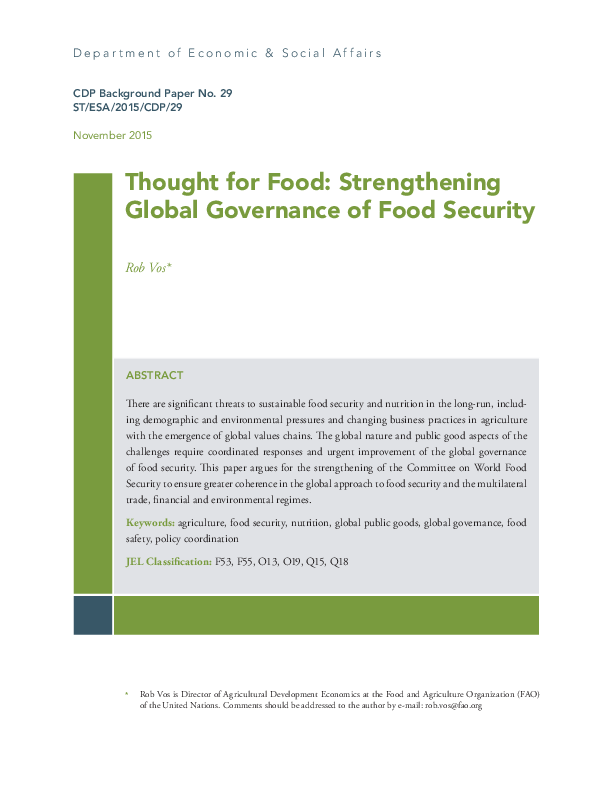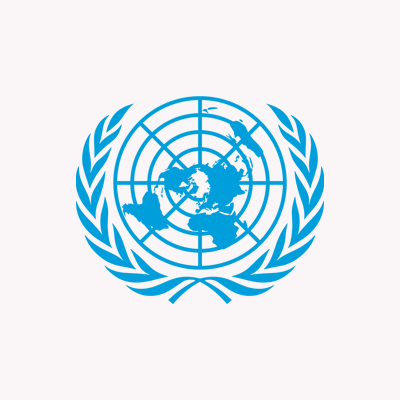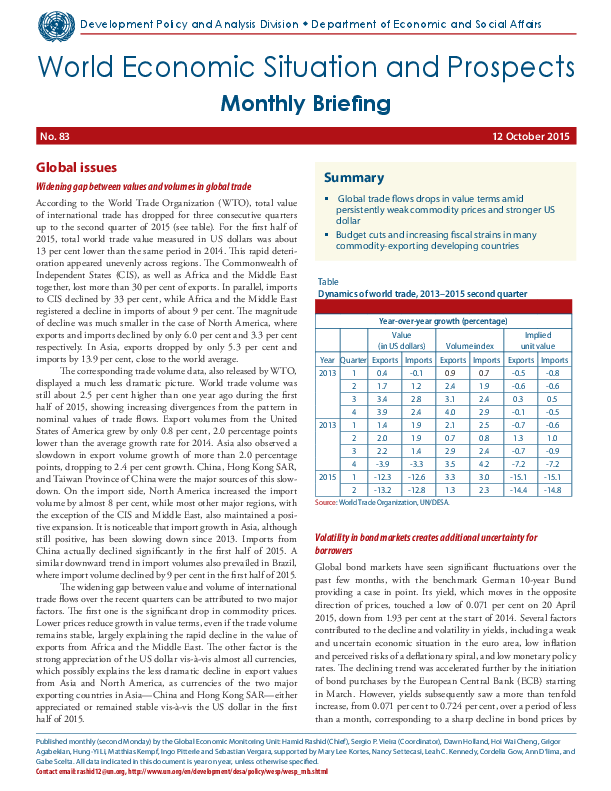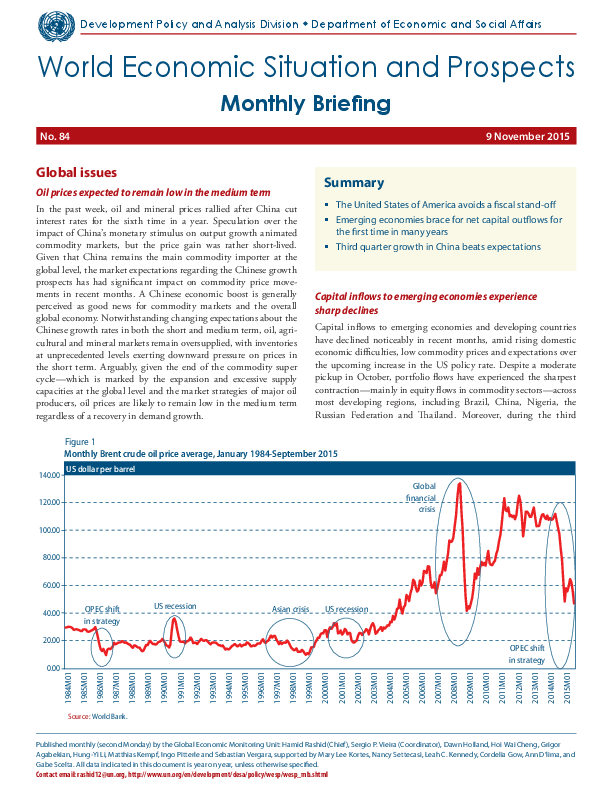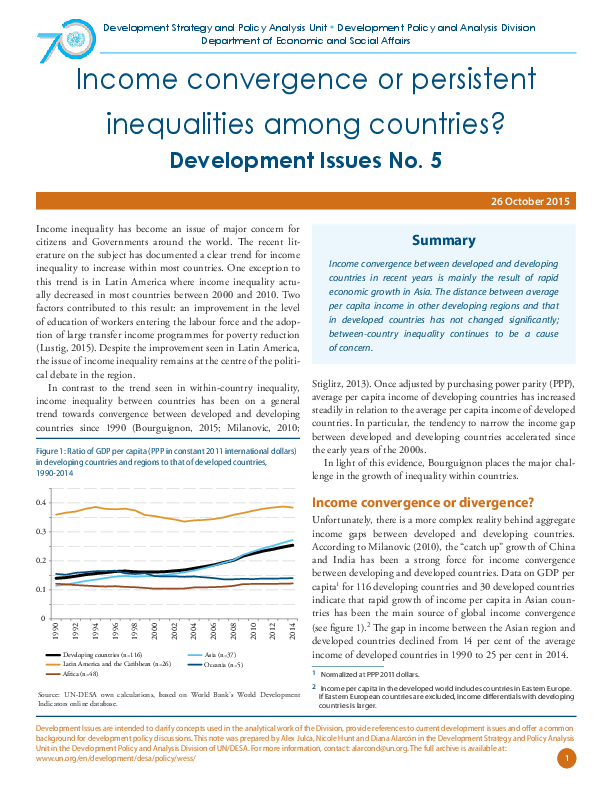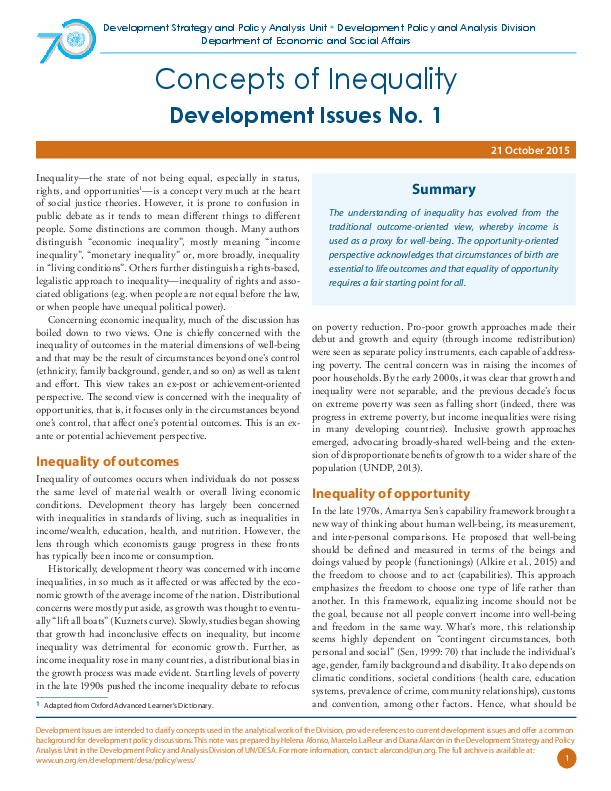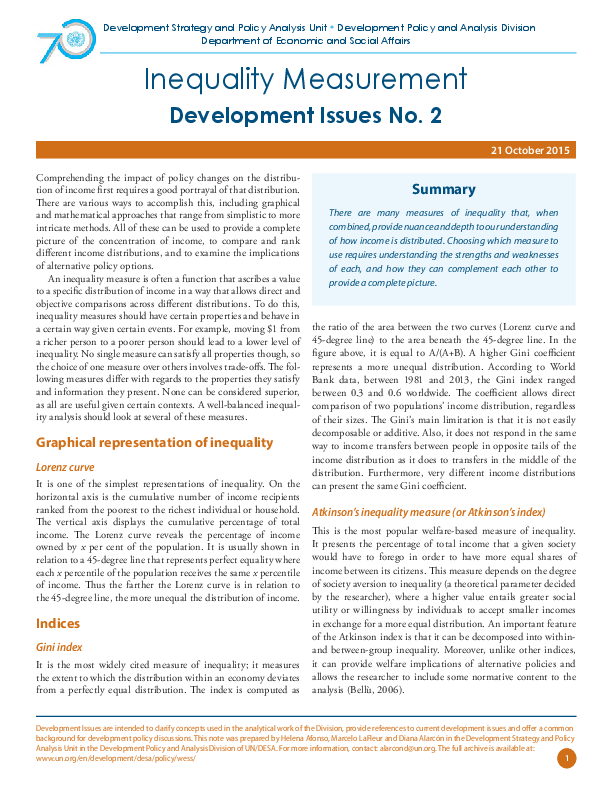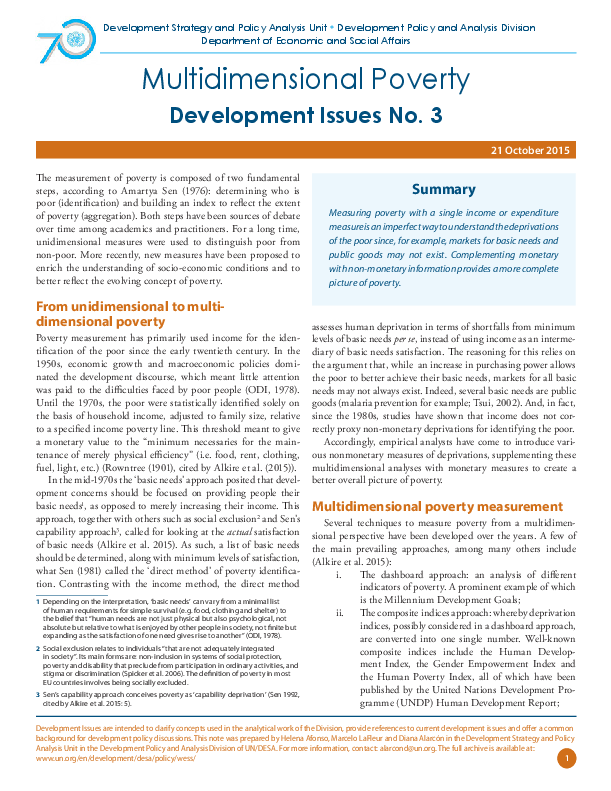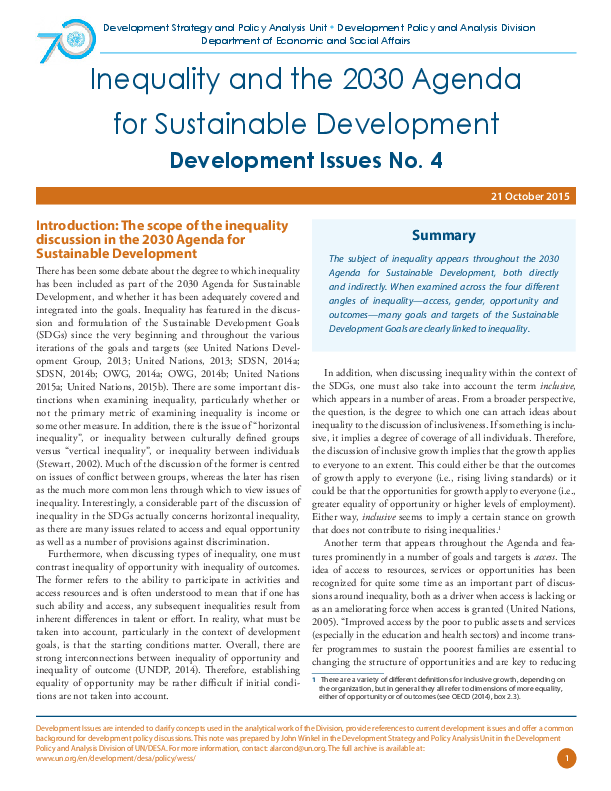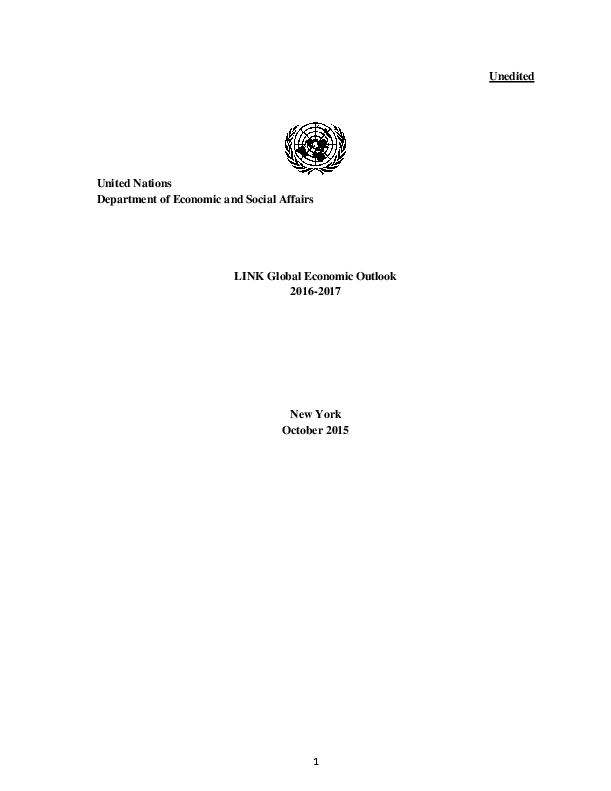Publications
Displaying 521 - 530 of 1083
Decline in capital inflows to emerging markets gains pace
Capital inflows to emerging economies continued a gradual but steady decline, amid domestic weaknesses and less favourable exter
Budget cuts and increasing fiscal strains in many commodity-exporting developing countries
Emerging economies brace for net capital outflows for the first time in many years ?
Third quarter growth in China beats expe
 Welcome to the United Nations
Welcome to the United Nations
